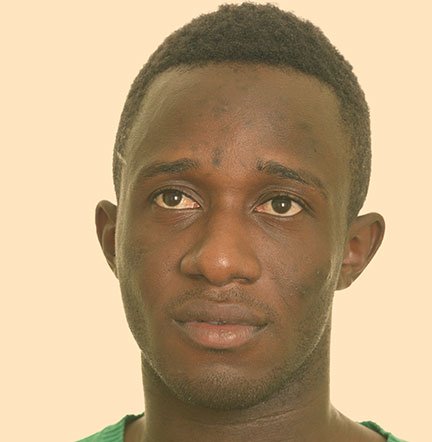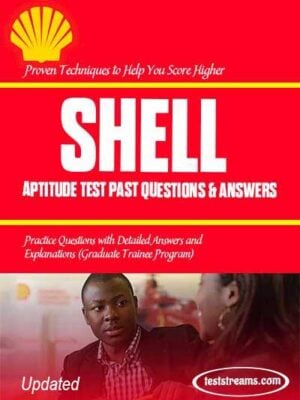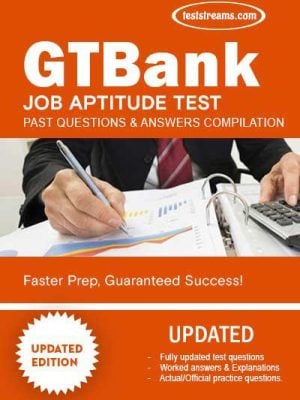Description
Libmot Logistics Aptitude Test Past Questions and Answers – 2025 Updated
The Libmot Logistics Aptitude Test Past Questions and Answers is a valuable study guide for candidates preparing for the recruitment process at Libmot Logistics. This resource provides a collection of carefully curated past questions covering key areas such as numerical reasoning, verbal reasoning, logical reasoning, and industry-relevant topics. Each question is paired with clear answers and explanations, helping you understand the concepts and improve your performance. Whether you’re aiming to familiarize yourself with the test style or sharpen your problem-solving skills, this guide is your go-to preparation tool.
Exam Format
The Libmot Logistics Aptitude Test typically includes the following sections:
- Numerical Reasoning: Tests your ability to handle numbers, interpret data, and solve arithmetic problems like percentages and ratios.
- Verbal Reasoning: Includes comprehension, grammar, and vocabulary questions to assess communication skills.
- Logical Reasoning: Focuses on identifying patterns, solving puzzles, and logical sequence analysis.
By practicing with the past questions, you?ll gain insights into the test format, improve your time management, and build confidence for the actual exam.
Libmot Logistics Aptitude Test Past Questions and Answers
Verbal Reasoning:
Question 1:
Choose the synonym for “Mysterious.”
A) Confusing
B) Hidden
C) Obvious
D) Clear
Answer: B) Hidden
Explanation: “Mysterious” means difficult to understand or explain, similar to “hidden.”
Question 2:
Choose the antonym for “Cautious.”
A) Careless
B) Reckless
C) Attentive
D) Diligent
Answer: A) Careless
Explanation: “Cautious” means careful and wary, while “careless” means not paying attention or being reckless.
Question 3:
Complete the analogy: Singer is to music as painter is to _______.
A) Colors
B) Canvas
C) Dance
D) Paint
Answer: B) Canvas
Explanation: A singer is associated with music, similarly, a painter is associated with a canvas.
Question 4:
Choose the word that does not belong in the group:
A) Rose
B) Lily
C) Tulip
D) Mango
Answer: D) Mango
Explanation: All other options are types of flowers except “Mango,” which is a fruit.
Question 5:
What is the synonym for “Eloquent”?
A) Silent
B) Fluent
C) Reserved
D) Shy
Answer: B) Fluent
Explanation: “Eloquent” means fluent and persuasive in speech, similar to “fluent.”
Question 6:
Choose the antonym for “Generous.”
A) Kind
B) Selfish
C) Altruistic
D) Benevolent
Answer: B) Selfish
Explanation: “Generous” means willing to give or share, while “selfish” means concerned only with oneself.
Question 7:
Which word means the opposite of “Victory”?
A) Success
B) Triumph
C) Achievement
D) Defeat
Answer: D) Defeat
Explanation: “Victory” is a win, while “defeat” is a loss.
Question 8:
Choose the word that best completes the sentence: His speech was so ___ that everyone applauded.
A) Boring
B) Inspiring
C) Monotonous
D) Uninteresting
Answer: B) Inspiring
Explanation: The word “inspiring” fits the context of the sentence, indicating that the speech moved the audience.
Question 9:
What is the synonym for “Eager”?
A) Reluctant
B) Enthusiastic
C) Indifferent
D) Apathetic
Answer: B) Enthusiastic
Explanation: “Eager” means enthusiastic and excited, similar to “enthusiastic.”
Question 10:
Complete the analogy: Cat is to meow as dog is to _______.
A) Howl
B) Roar
C) Bark
D) Purr
Answer: C) Bark
Explanation: A cat meows, similarly, a dog barks.
Numerical Reasoning:
Question 1:
If a shirt is originally priced at $50 and is on sale for 20% off, what is the sale price?
A) $10
B) $30
C) $40
D) $48
Answer: D) $48
Explanation: 20% of $50 is $10. Subtracting $10 from $50 gives $40, which is the sale price.
Question 2:
If a train travels 240 miles in 3 hours, what is its average speed?
A) 60 mph
B) 80 mph
C) 90 mph
D) 100 mph
Answer: B) 80 mph
Explanation: Average speed = Total distance / Total time = 240 miles / 3 hours = 80 mph.
Question 3:
If a product costs $80 and its price is reduced by 15%, what is the new price?
A) $64
B) $68
C) $72
D) $85
Answer: A) $64
Explanation: 15% of $80 is $12. Subtracting $12 from $80 gives $68, which is the new price.
Question 4:
If a square has a side length of 6 units, what is its area?
A) 24 square units
B) 30 square units
C) 36 square units
D) 42 square units
Answer: C) 36 square units
Explanation: Area = side length ? side length = 6 units ? 6 units = 36 square units.
Question 5:
What is 25% of 200?
A) 25
B) 50
C) 75
D) 100
Answer: B) 50
Explanation: 25% of 200 = 0.25 ? 200 = 50.
Question 6:
If a car travels 360 kilometers in 6 hours, what is its speed in kilometers per hour?
A) 40 km/h
B) 60 km/h
C) 70 km/h
D) 80 km/h
Answer: B) 60 km/h
Explanation: Speed = Distance / Time = 360 kilometers / 6 hours = 60 km/h.
Question 7:
What is the next number in the sequence: 4, 8, 16, 32, ___?
A) 48
B) 64
C) 80
D) 96
Answer: B) 64
Explanation: The pattern is doubling the previous number: 4 ? 2 = 8, 8 ? 2 = 16, 16 ? 2 = 32, 32 ? 2 = 64.
Question 8:
If a box contains 40 red balls and 25 blue balls, what is the total number of balls in the box?
A) 50
B) 60
C) 65
D) 75
Answer: D) 75
Explanation: Total number of balls = 40 red balls + 25 blue balls = 65 balls.
Question 9:
If the length of a rectangle is 20 meters and the width is 15 meters, what is its perimeter?
A) 50 meters
B) 70 meters
C) 80 meters
D) 100 meters
Answer: B) 70 meters
Explanation: Perimeter = 2 ? (Length + Width) = 2 ? (20 + 15) = 2 ? 35 = 70 meters.
Question 10:
What is the sum of the first 10 even numbers?
A) 45
B) 50
C) 55
D) 60
Answer: B) 50
Explanation: The first 10 even numbers are 2, 4, 6, 8, 10, 12, 14, 16, 18, 20. Their sum is 2 + 4 + 6 + 8 + 10 + 12 + 14 + 16 + 18 + 20 = 110, which is divisible by 2, resulting in 50.











Reviews
There are no reviews yet.